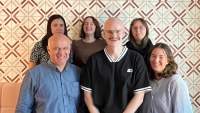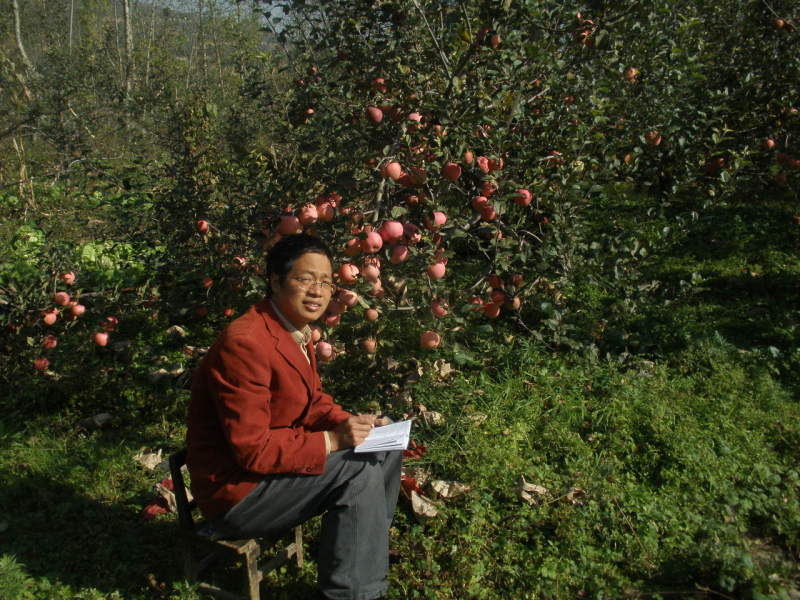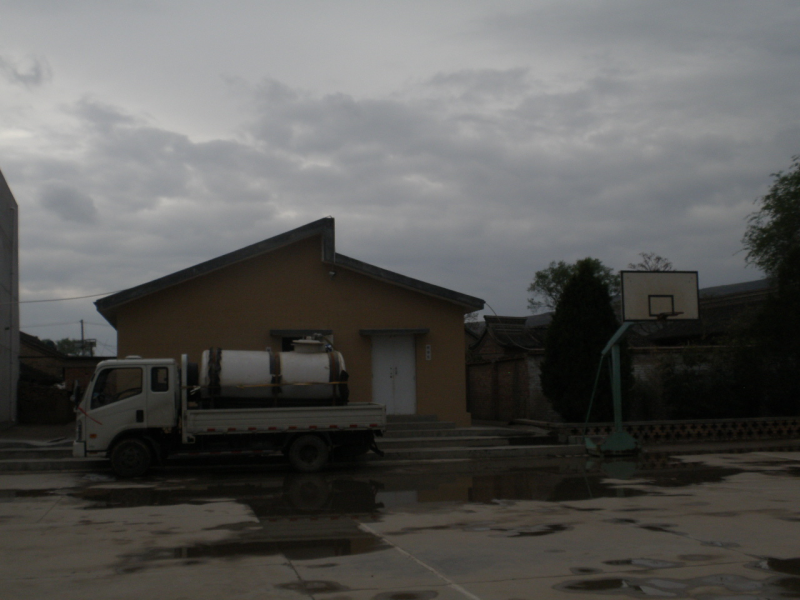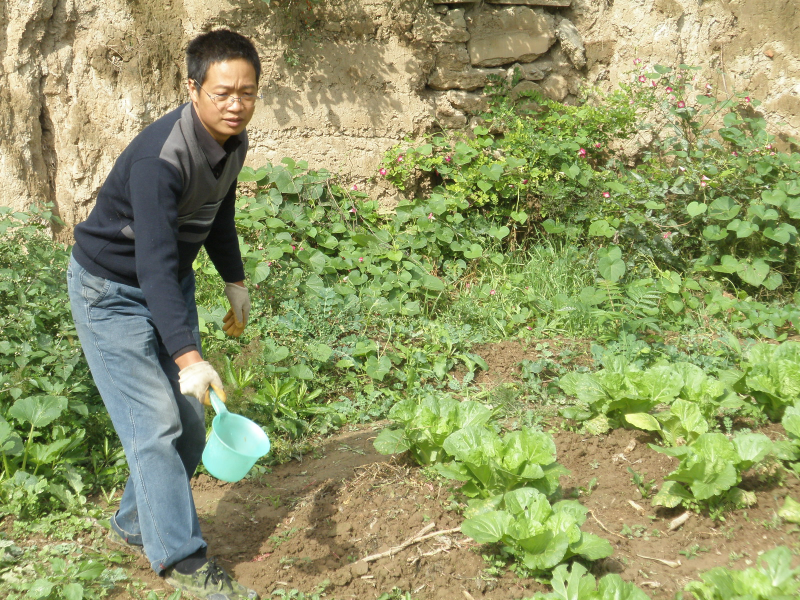- Forum
- categories
- Announcements and miscellaneous
- General announcements
- Featured Users
- Featured User (14) of June 2016: Chen Xiangyang (Scott) from China
Featured User (14) of June 2016: Chen Xiangyang (Scott) from China
25.5k views
- secretariat
-
 Topic Author
Topic Author- Moderator
- SuSanA secretariat currently allocates 2 full time person equivalents of time from members of GIZ Sustainable Sanitation Team: Arne Panesar, Alexandra Dubois, Maren Heuvels, Teresa Häberlein, Daphne Manolakos and Bettina-Sophie Heinz.
Featured User (14) of June 2016: Chen Xiangyang (Scott) from China
The SuSanA secretariat is happy to announce the 14th featured user today: Chen Xiangyang (Scott) from China! (Previous featured users can be found here:
forum.susana.org/forum/categories/145-featured-users
)
Scott joined the SuSanA community in December 2013 in order share his experiences on his Ecosan project: Scott is a Chinese farmer who fertilizes his fruits and vegetables with human waste, which he collects from UDDTs in more than 30 schools.
Read more about his work and his achievements in the following interview and take a look at these exemplary forum posts:
To find all other 67 postings, take a look at Scott's profile: forum.susana.org/forum/profile/userid-3522
Thank you, Scott, for sharing your experiences with us!
It is great to see that you don't only dream of sustainable agriculture, but also put forward a good example.
Please also keep us updated on your next project on urine diverting piggeries!
Interview Part 1: About Scott as a person and his work
1. You registered with SuSanA on 04 Dec 2013. Do you remember what made you join the network then?
I did communicate with Arno Rosemarine only about my Ecosan experiments in China before that date. 2013 was my 2nd successful year and I decided to register with SuSanA for reporting what I had achieved in China.
2. What is your nationality and where do you live currently? Have you lived somewhere else before? Where and why – if relevant?
My nationality is Chinese. I have never been living abroad.
3. What and where did you study, and why?
I graduated from Xiaogan Junior Normal college, majored in English between 1988-1990. It is my dream to see the world so I study English very hard.
4. How did you get the idea of establishing an Ecosan Project? What have you reached so far and want to reach in the future?
As the sole agent of Separett in China, I was given an opportunity by Arno to improve the UDDTS with Separett Villa 9000 in the China-Sweden Erdos Eco-town. I had a feeling that we must have the property owners to benefit from the Ecosan projects for obtaining their support.
In 2010, Arno invited me to attend a phosphorus summit in Sweden. I learned that the dry toilets in the world seldom succeeded. I decided to set up the 1st profitable Ecosan project sample in the world, turning the waste into money as we Chinese have this culture for thousands of years.
So far, what I have achieved is that the demand-driven ECOSAN approach is workable with the following achievements:
What I want to reach in the future?
My next focus is to set up a company to promote urine diverting piggeries in China solving the pollution caused by pigs manure. We Chinese people eat over 700 million pigs each year. But so far, few people are specializing in dealing with the pollution in large scale pig farms.
Cooperl, a French company, has invented a system to separate the pigs’ urine and solid waste. We are discussing to work with each other in China.
5. How do you get the human waste collected from 31 school UDDTs to your fields? What or who initiated the cooperation between you and the schools?
I bought a truck with a loan and employed a driver to take the urine to the fields owned by peasants. SOHO China Foundation who donated the schools toilets initiated the cooperation between me and the schools.
6. How is the daily life of an apple grower? And what has been the most challenging situation you have faced professionally?
An apple grower has to trim the trees, thinning the flowers, erasing the weeds...all the time.
The most challenging thing is that I do not have enough energy and time to train the teachers and students in time. In some schools the students do not use the UDDTs as we expect.
The 2nd challenge is to serve the customers with consistent quality products since the urine is not fertile enough for the plant to grow.
7. What are the three things you would take to a remote island? Or what are the three “things” that are really important for you in practical terms?
1st, a book such as organic agriculture and etc.
2nd, a match for produce fire
3rd, a fishing rod for fishing to feed me.
8. What books or magazines can be found on your bedside table?
The books written by Dr. Arno Rosemarine about the China-Sweden Erdos Eco-tow and the MDGs.
9. What are your hobbies?
Listening to the radio and swimming.
10. Do you have a personal slogan or a motto that keeps you motivated at all times?
Based in China, establishing a sustainable agriculture, providing save food and improve the water quality to pre-1970’s.
The interview is split up into 3 parts with the next two parts following in the next days.
Have a nice day everybody,
Raphaela
(On behalf of the SuSanA secretariat)
Scott joined the SuSanA community in December 2013 in order share his experiences on his Ecosan project: Scott is a Chinese farmer who fertilizes his fruits and vegetables with human waste, which he collects from UDDTs in more than 30 schools.
Read more about his work and his achievements in the following interview and take a look at these exemplary forum posts:
- In February 2014 he presented his project " Using urine from school UDDTs as fertiliser for apple and cherry trees in Gansu Province, China - update on a successful business "
- Starting in February 2016, he reported about about The installation of waterless urine diversion dry toilet in in the roof garden of Shen Zhen Construction Acadamy, China
To find all other 67 postings, take a look at Scott's profile: forum.susana.org/forum/profile/userid-3522
Thank you, Scott, for sharing your experiences with us!
It is great to see that you don't only dream of sustainable agriculture, but also put forward a good example.
Please also keep us updated on your next project on urine diverting piggeries!
Interview Part 1: About Scott as a person and his work
1. You registered with SuSanA on 04 Dec 2013. Do you remember what made you join the network then?
I did communicate with Arno Rosemarine only about my Ecosan experiments in China before that date. 2013 was my 2nd successful year and I decided to register with SuSanA for reporting what I had achieved in China.
2. What is your nationality and where do you live currently? Have you lived somewhere else before? Where and why – if relevant?
My nationality is Chinese. I have never been living abroad.
3. What and where did you study, and why?
I graduated from Xiaogan Junior Normal college, majored in English between 1988-1990. It is my dream to see the world so I study English very hard.
4. How did you get the idea of establishing an Ecosan Project? What have you reached so far and want to reach in the future?
As the sole agent of Separett in China, I was given an opportunity by Arno to improve the UDDTS with Separett Villa 9000 in the China-Sweden Erdos Eco-town. I had a feeling that we must have the property owners to benefit from the Ecosan projects for obtaining their support.
In 2010, Arno invited me to attend a phosphorus summit in Sweden. I learned that the dry toilets in the world seldom succeeded. I decided to set up the 1st profitable Ecosan project sample in the world, turning the waste into money as we Chinese have this culture for thousands of years.
So far, what I have achieved is that the demand-driven ECOSAN approach is workable with the following achievements:
- Since 2010, I have taken the urine from the UDDTs in 31 schools to the orchards as fertilizers, reducing their usage of chemical fertilizer by around 60%, reaching a turnover of 1.3 million Yuan per year.
- Over 7,000 people have purchased my apples, cherries, potatoes at a price which is 3-5 times higher than the crops using chemical fertilizers.
- I have over 25,000 fans in China in my social media through which millions of people have come to understand the importance of circular economy.
What I want to reach in the future?
My next focus is to set up a company to promote urine diverting piggeries in China solving the pollution caused by pigs manure. We Chinese people eat over 700 million pigs each year. But so far, few people are specializing in dealing with the pollution in large scale pig farms.
Cooperl, a French company, has invented a system to separate the pigs’ urine and solid waste. We are discussing to work with each other in China.
5. How do you get the human waste collected from 31 school UDDTs to your fields? What or who initiated the cooperation between you and the schools?
I bought a truck with a loan and employed a driver to take the urine to the fields owned by peasants. SOHO China Foundation who donated the schools toilets initiated the cooperation between me and the schools.
6. How is the daily life of an apple grower? And what has been the most challenging situation you have faced professionally?
An apple grower has to trim the trees, thinning the flowers, erasing the weeds...all the time.
The most challenging thing is that I do not have enough energy and time to train the teachers and students in time. In some schools the students do not use the UDDTs as we expect.
The 2nd challenge is to serve the customers with consistent quality products since the urine is not fertile enough for the plant to grow.
7. What are the three things you would take to a remote island? Or what are the three “things” that are really important for you in practical terms?
1st, a book such as organic agriculture and etc.
2nd, a match for produce fire
3rd, a fishing rod for fishing to feed me.
8. What books or magazines can be found on your bedside table?
The books written by Dr. Arno Rosemarine about the China-Sweden Erdos Eco-tow and the MDGs.
9. What are your hobbies?
Listening to the radio and swimming.
10. Do you have a personal slogan or a motto that keeps you motivated at all times?
Based in China, establishing a sustainable agriculture, providing save food and improve the water quality to pre-1970’s.
The interview is split up into 3 parts with the next two parts following in the next days.
Have a nice day everybody,
Raphaela
(On behalf of the SuSanA secretariat)
Posted by a member of the SuSanA secretariat held by the GIZ Sector Program Water Policy – Innovations for Resilience
Located at Deutsche Gesellschaft für Internationale Zusammenarbeit (GIZ) GmbH, Bonn, Germany
Follow us on facebook: www.facebook.com/susana.org, linkedin: www.linkedin.com/company/sustainable-sanitation-alliance-susana.
Located at Deutsche Gesellschaft für Internationale Zusammenarbeit (GIZ) GmbH, Bonn, Germany
Follow us on facebook: www.facebook.com/susana.org, linkedin: www.linkedin.com/company/sustainable-sanitation-alliance-susana.
Attachments:
-
 2011living...hard.png
(Filesize: 1,104KB)
2011living...hard.png
(Filesize: 1,104KB)
-
 pumpinguri...ilet.png
(Filesize: 614KB)
pumpinguri...ilet.png
(Filesize: 614KB)
-
 2010urinev...bles.png
(Filesize: 1,221KB)
2010urinev...bles.png
(Filesize: 1,221KB)
-
 cherries.jpg
(Filesize: 86KB)
cherries.jpg
(Filesize: 86KB)
The following user(s) like this post: Elisabeth, canaday, Marijn Zandee
Please Log in to join the conversation.
You need to login to reply
Share this thread:
- Forum
- categories
- Announcements and miscellaneous
- General announcements
- Featured Users
- Featured User (14) of June 2016: Chen Xiangyang (Scott) from China
Recently active users. Who else has been active?
Time to create page: 0.788 seconds







